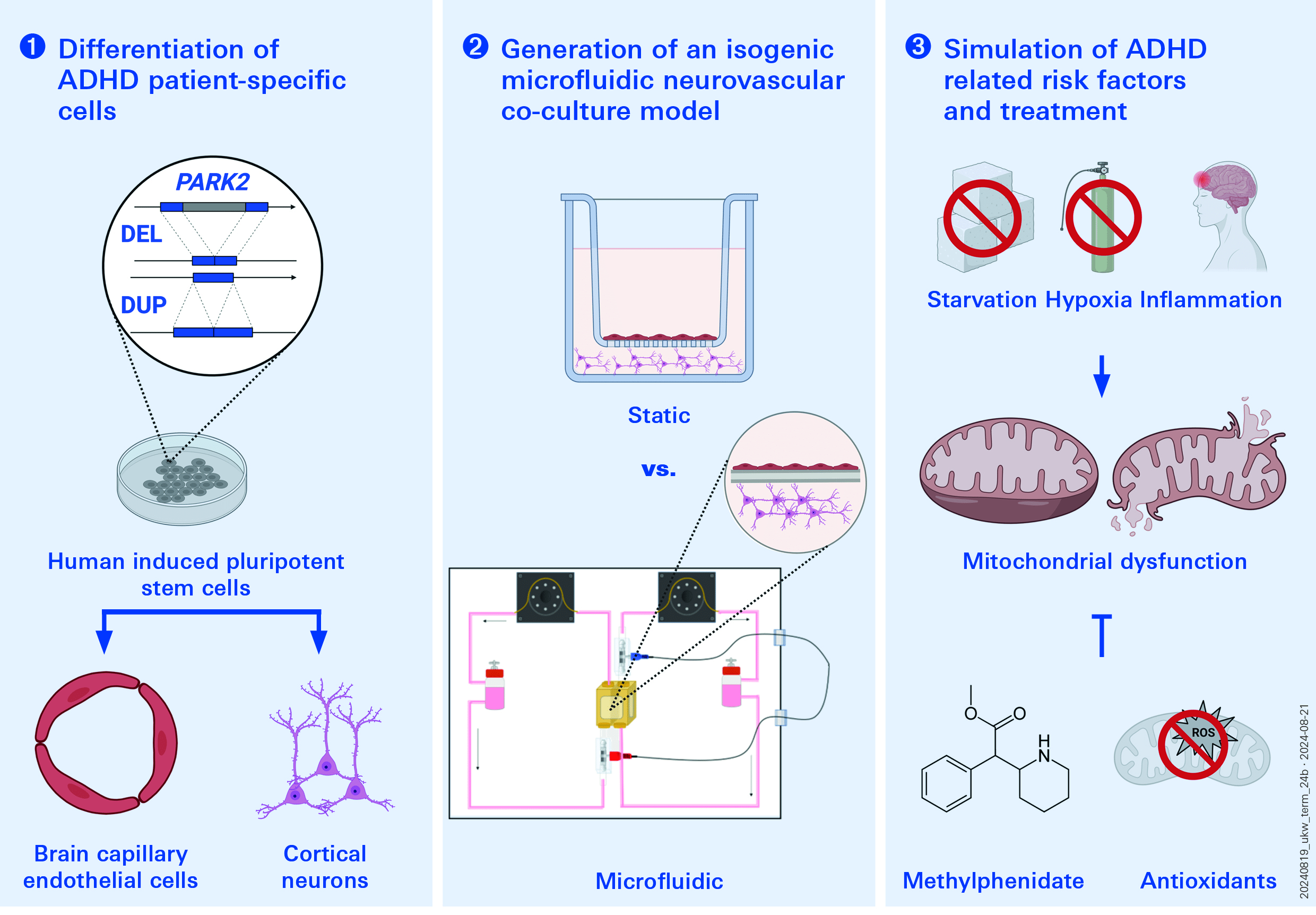Mitochondrial function in ADHD
Attention deficit-hyperactivity disorder (ADHD) is one of the most common developmental psychiatric disorders. Up to 5% of children and 3% of adults are affected. Up to 80% of the causes of the disorder are genetic. The aim of the project is to investigate genetic risk variants (copy number variants, CNVs) and gene-environment interactions that can contribute to the development of ADHD.
Patient-specific induced pluripotent stem cells (iPSC) are used, which carry disease-associated CNVs in the PARK2 gene. From these, complex in vitro test systems of the neurovascular unit are produced in the laboratory. They will be used to gain new insights into mitochondrial dysfunction, including for potentially effective new treatment options with antioxidant substances, for example. Mitochondrial dysfunction could contribute to the development and symptoms of ADHD. Among other things, the findings from this project will be used to provide dynamic models for screening potential new drugs.



